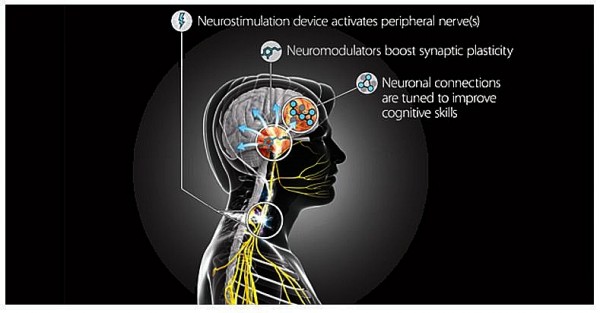By Arthur Dominic J. Villasanta , | May 13, 2017

The main goal of the Targeted Neuroplasticity Training (TNT) program is to understand the basic mechanisms linking neurostimulation to plasticity.
The U.S. Defense Advanced Research Projects Agency (DARPA) is pushing hard on a new program that intends to make people a lot smarter by electrically stimulating nerves in order to encourage new connections among neurons in the brain.
DARPA recently awarded funds to eight programs in seven institutions working on the basic science that will guide the future of cognitive enhancement technology. Their work will initially focus on the fundamental science of brain plasticity and aims to conclude with human trials in healthy volunteers.
Like Us on Facebook
In March 2016, DARPA announced the Targeted Neuroplasticity Training (TNT) program, an effort to enlist the body's peripheral nervous system to achieve something that has long been considered the brain's domain alone: facilitation of learning.
The peripheral nervous system (PNS) is one of the two main parts of the nervous system, the other being the central nervous system (CNS). PNS consists of the nerves and ganglia outside of the brain and spinal cord.
The main function of the PNS is to connect the CNS to the limbs and organs, essentially serving as a relay between the brain and spinal cord and the rest of the body.
The heart of the wide-ranging TNT program is to identify optimal and safe neurostimulation methods for activating "synaptic plasticity."
Synaptic plasticity is a natural process in the brain (which is pivotal to learning) involving the strengthening or weakening of the junctions between two neurons. This process will be followed by enhanced training regimens that accelerate the acquisition of cognitive skills.
TNT was inspired by recent research showing the stimulation of certain peripheral nerves can activate regions of the brain involved with learning.
Such signals can potentially trigger synaptic plasticity by releasing neurochemicals that reorganize neural connections in response to specific experiences. TNT researchers will strive to identify the physiological mechanisms that might allow this natural process to be enhanced using electrical stimulation of peripheral nerves, making the brain more adaptive during key points in the learning process.
"DARPA is approaching the study of synaptic plasticity from multiple angles to determine whether there are safe and responsible ways to enhance learning and accelerate training for skills relevant to national security missions," said Doug Weber, TNT Program Manager.
By the end of the planned four-year program, DARPA aims to demonstrate that TNT methods and technologies can yield at least a 30 percent improvement in learning rate and/or skill performance over traditional training regimens, with minimal negative side effects.
"DARPA's goal with TNT is to further enhance the most effective existing training methods so the men and women of our Armed Forces can operate at their full potential," said Weber.
-
Use of Coronavirus Pandemic Drones Raises Privacy Concerns: Drones Spread Fear, Local Officials Say

-
Coronavirus Hampers The Delivery Of Lockheed Martin F-35 Stealth Fighters For 2020

-
Instagram Speeds Up Plans to Add Account Memorialization Feature Due to COVID-19 Deaths

-
NASA: Perseverance Plans to Bring 'Mars Rock' to Earth in 2031

-
600 Dead And 3,000 In The Hospital as Iranians Believed Drinking High-Concentrations of Alcohol Can Cure The Coronavirus

-
600 Dead And 3,000 In The Hospital as Iranians Believed Drinking High-Concentrations of Alcohol Can Cure The Coronavirus

-
COVID-19: Doctors, Nurses Use Virtual Reality to Learn New Skills in Treating Coronavirus Patients










